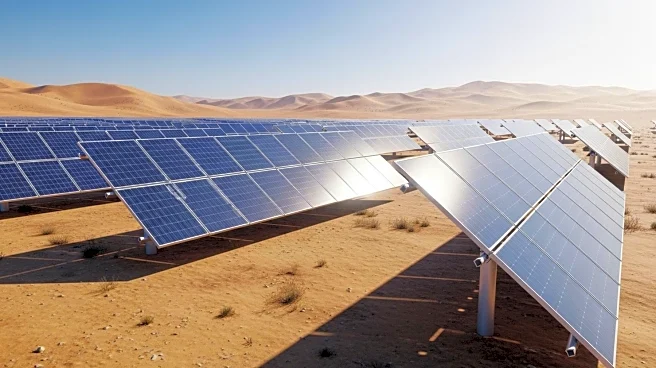What is the story about?
What's Happening?
China's desert solar parks are creating ecological changes by cooling soil, slowing wind, and supporting plant growth. These solar panels, spread across vast desert areas, have been shown to improve vegetation cover and soil health. The panels shade the ground, reducing heat and evaporation, which benefits plant and microbial communities. The design of these solar parks, including module height and row spacing, influences the ecological impact. Satellite analyses have observed seasonal greening signals, indicating positive environmental effects.
Why It's Important?
The ecological benefits of China's desert solar panels highlight the potential for renewable energy projects to contribute to environmental restoration. By improving soil moisture and supporting plant growth, these solar parks offer co-benefits beyond energy generation. This approach aligns with global efforts to integrate sustainability into renewable energy development, providing a model for other regions facing similar environmental challenges. The positive impact on biodiversity and soil health underscores the importance of responsible site design and management.
Beyond the Headlines
The long-term effects of these solar parks on desert ecosystems remain uncertain, necessitating ongoing monitoring and adaptive management. The potential for altered albedo and wind patterns to affect areas beyond the solar parks' boundaries requires careful consideration. The integration of ecological benefits into renewable energy projects represents a shift towards more holistic approaches to sustainability.















